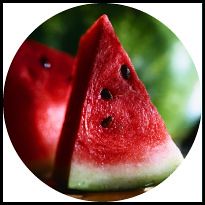Praotes
 The sermon topics for the past few weeks at Common Grounds have been on the "fruits of the spirit." This Thursday's was gentleness or meekness (depending on the translation).
The sermon topics for the past few weeks at Common Grounds have been on the "fruits of the spirit." This Thursday's was gentleness or meekness (depending on the translation).I knew the moment Joe started talking that I needed to pay attention. It was a really good sermon. You wouldn't think that a sermon about gentleness would lead me to a better understanding of anger, but it did.
First a story. I was in a class at church five years ago. I remember the date (unlike my usual attempts at memory) because it was 13 days after September 11. We were discussing the story of Potiphar's wife. The question came up as to whether her attempts to seduce Joseph were not rooted in lust but instead in anger at her husband for his inattention. Was the root of her sin of lust actually the sin of anger? A few weeks before, we had just finished a series of classes based on the book by Nicole Johnson called Fresh Brewed Life*. We had spent a whole session during that study examining the emotion of anger. It seemed strange to me now to be calling anger a sin. So, being me, I said, "Is anger a sin?"
An older lady in the class (it was an all female class) whipped around in her chair, and in no uncertain terms, said, "Yes, anger is a sin." I was shocked at the time by her certainty.
I mentioned to her that in the temple, when he cleared out the money-changers, Jesus was angry, and that we didn't consider that to be a sin. She put that aside and said that Jesus' anger in the temple was righteous anger, and then sited verses telling us to be slow to anger.
Is anger a sin? I don't think so. I think it is an emotion, just like joy or fear. I think sin comes into play when we use our anger as a motivation for hateful, horrible acts. I wrote at the time that it was not a sin to be angry that so many people had been killed in a terrorist act (which is why I explained the date of this conversation). We are made -- created -- to feel abhorrance and anger at such an act. It's what we do about it that is the key question.
So what does that old story have to do with gentleness and meekness? Joe said that the Greek word which is used in the list of the fruits of the spirit is "praotes." He said we would witness praotes when we see an offended person who has the justification to lash out in anger, but instead reaches out in love.
Do we respond with love and care, even when we are hurt and angry? Praotes. Do we "give people what they deserve?" or do we show them grace? Praotes. Can we find other way to react to a hurt without escalating the situation? Praotes.
Anger is not a sin. When anger is used as a motivation to fight injustice or to further God's work, then we see the positive fruit of this emotion. When our anger becomes more important than God -- when the priority becomes the anger, and not our mission, then we sin.
And the good news is that praotes is a fruit of the spirit. It's not something God expects us to do on our own. It is a gift that he has given to us through His spirit. With God's help we can respond with forgiveness and care and love. Praotes.
* Fresh-Brewed Life is a really good book. I may need to go back to read it again. It has a chapter on journaling, which started me writing in a journal, and, if we go back to its tiny, baby roots, may be the genesis of this blog.
Image: Joe and Carol have a real fruit to represent each fruit of the spirit, and watermelon was the one for praotes.

3 Comments:
I would say that anger is not a sin (or else Jesus would have sinned in the Temple), but that hatred is.
And I would agree with you!
ESV
Eph 4:26 Be angry and do not sin; do not let the sun go down on your anger,
KJV:
Be ye angry and sin not. Let not the sun go down upon your wrath.
It's pretty clear that anger is not a sin, but temptation frequently accompanies it.
Post a Comment
<< Home